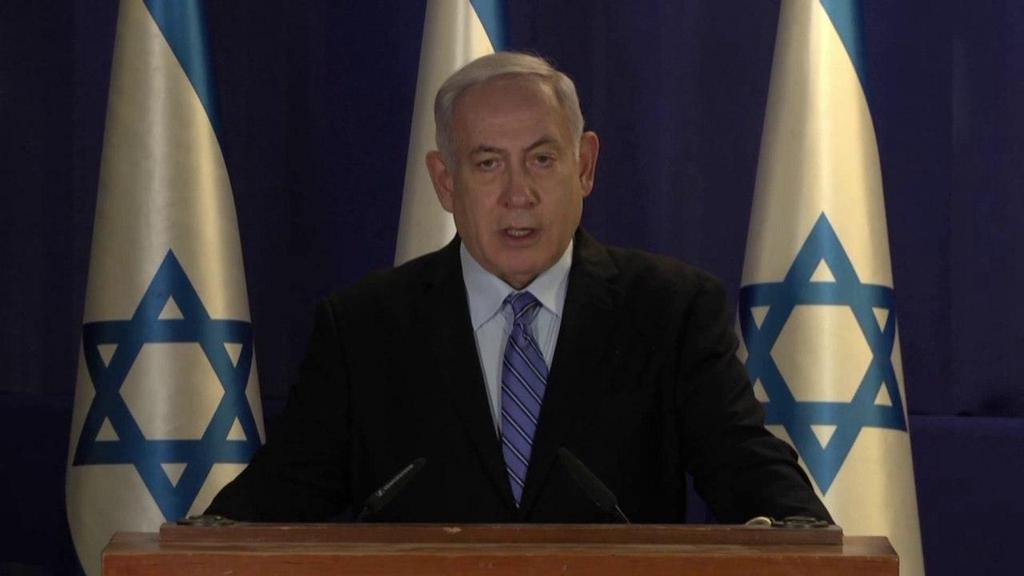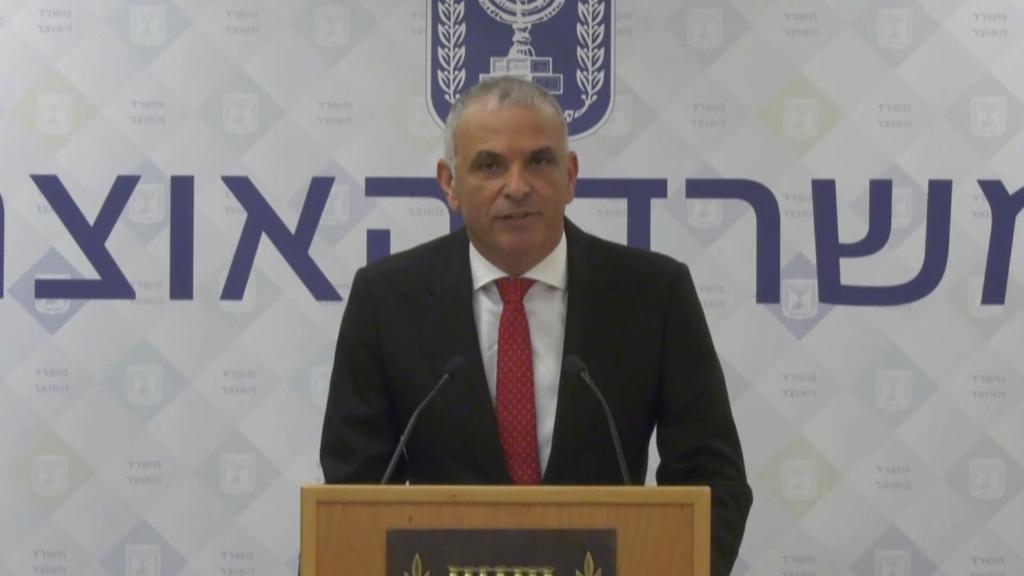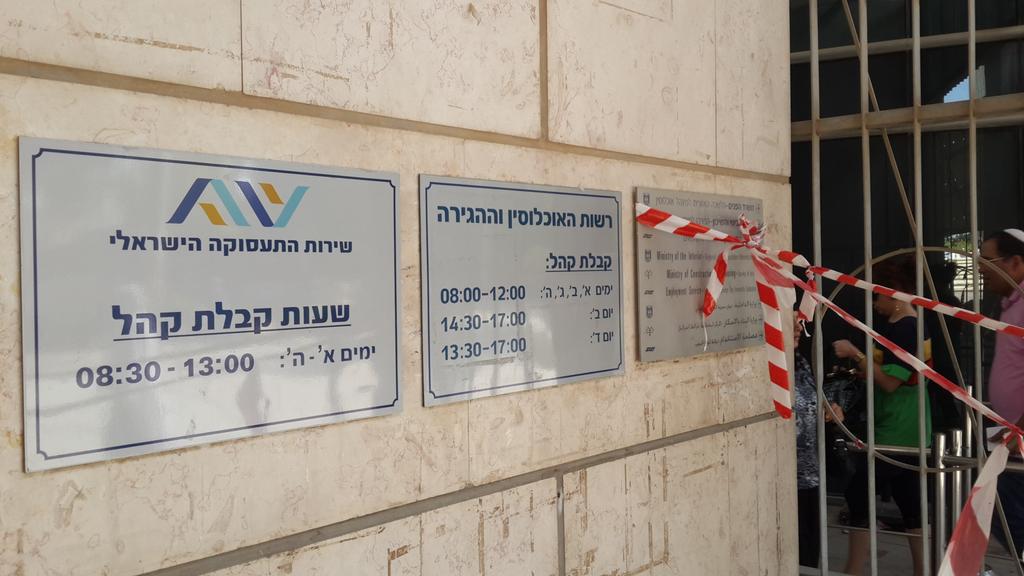Getting your Trinity Audio player ready...
Prime Minister Benjamin Netanyahu on Monday unveiled the long-awaited financial rescue package to help boost Israel's economy in the wake of the coronavirus epidemic and announced new stricter measures meant to combat the health crisis. The finance minister who helped unveil the plan, warned the society "won't be the same" until the crisis is over.
The plan was announced via a press conference from Prime Minister's Office after him and his inner circle placed themselves in self-isolation pending epidemiological results, after one of his advisers tested positive for COVID-19.
The prime minister kicked off the press conference by addressing the criticism leveled the ultra-Orthodox community in the country, members of which appear to defy the government restrictions.
"There are particular groups in the country who disrespect the guidelines," he said, adding he ordered security forces to step up enforcement in areas with a high number of violations of the directives.
"It’s true that in Israel we’re in a better situation than most other places in the world,” he said, adding he nevertheless wants to see a reduction in the number of new coronavirus cases. “There won’t be gatherings of over two people who are not from the same nuclear family.”
Additionally, he announced that prayers will not be allowed in open areas and that religious events should be restricted as much as possible. Netanyahu also called on Israelis not to visit family during the Passover holiday next month.
Furthermore, essential business that are still allowed to operate will need to reduce their workforce from the current 30% to 15%. If, however, workplace is spacious enough to allow more than the required 15%, the number of employees can be increased by another 15%.
Netanyahu said the government came up with an unprecedent NIS 80 billion rescue package for the next three months, which represents approximately 6% of Israel's GDP. "Half the amount will come in cash from government funds and the other half will be credit, very convenient," he added.
Finace Minister Moshe Kahlon also took part in the virtual news conference via a video stream from the Finance Ministry and announced he intends to retire from politics once the new government is formed.
“I know that this [plan] will not bring the situation back to what it was - not for business, nor for freelancers, not for employees and unfortunately not the Israeli society,” said Kahlon.
“But, this is still the most significant plan that the Israeli economy has ever seen and it will be improved if needed. I have no doubt that if this crisis continues, we will need additional plans … we will not let Israeli economy fail.”
Israel has seen a rise of more than 800,000 people registering as unemployed since the restriction on business were first introduced by the government at the start of March. The Employment Service said the new figure puts the country's rate of unemployment at 23.1%.
"Within a month, we have jumped from 30,000 unemployed to one million. That's an unimaginable number. Entire industries shut down and hundreds of thousands of households are under financial burden," he said.
Kahlon said the plan encompasses “four central spheres” of Israel’s economy. The first one is the health care system that will be provided with NIS 10 billion to fight coronavirus. The second is the NIS 20 billion social security network for employees, self-employed and the elderly.
The third is a NIS 32 billion rescue package for small, medium-sized and large businesses and enterprises. The fourth section is a NIS eight billion program to accelerate the growth of the economy.
Kahlon said he estimated the economy "would return, albeit gradually" to normal activity after the Passover holiday, which ends mid-April.
Bank of Israel Governor Amir Yaron, who has said the crisis had arrived when Israel's economy was in a strong position, said the stimulus package would reduce uncertainty.
The central bank has projected an economic contraction of 2.5% in 2020 as long as the nationwide lockdown eases by the end of April.
Reuters contributed to this report





